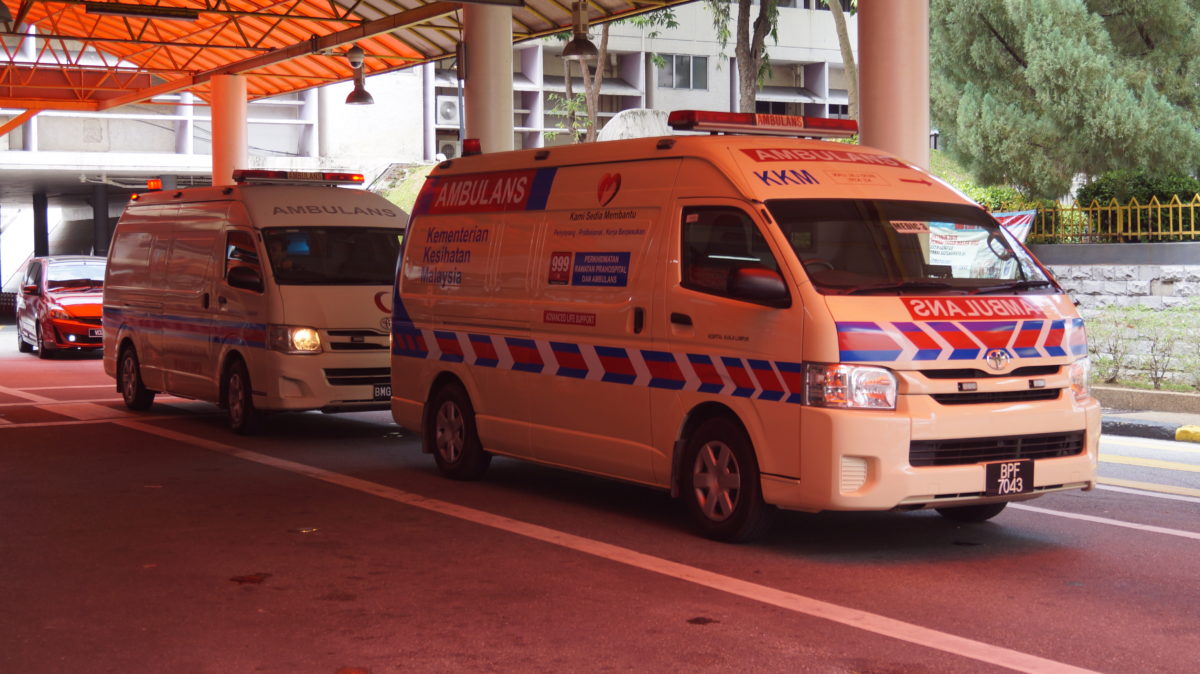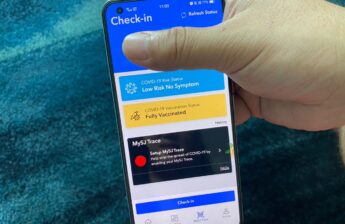KUALA LUMPUR, June 24 – Raja Permaisuri Bainun Hospital (HRPB) today insisted that its paramedic, who allegedly withheld cardiopulmonary resuscitation (CPR) from a heart attack victim in Ipoh, Perak, acted according to protocol.
HRPB director Dr Megat Iskandar Megat Abdul Hamid said, in response to CodeBlue’s report headlined “Ipoh Teacher Dies In Ambulance Response That Allegedly Skipped CPR”, that the medical assistant (MA) had performed a “clinical examination” and “confirmed that the victim had died” in the April 13 case of Kumaraveloo Terpari @ Thirupathy’s collapse in his car.
“In line with that, the MECC (Medical Emergency Coordination Centre) informed PDRM (Royal Malaysia Police) for further action. The hospital conducted an autopsy the following day to identify the cause of death,” Dr Megat Iskandar said in a statement.
The Ministry of Health (MOH) hospital director also said that his facility’s investigation on the emergency medical response in Kumaraveloo’s case found that the MA had followed the 2016 guidelines – “Recommendations on the Minimum Standards Required for the Management of Adult Out of Hospital Cardiac Arrest in Prehospital Care Services” – by the College of Emergency Physicians, Academy of Medicine Malaysia (AMM).
CodeBlue reported, based on eyewitness accounts and the MA’s Pre-Hospital and Ambulance Service (No Sign of Life) report that he signed on April 13 at 6.40pm – that the paramedic did not remove 43-year-old Kumaraveloo from his car to perform CPR or to use an available AED device from the ambulance to revive him, claiming signs of algor mortis (body turned cold).
The MA’s report stated that he arrived at the scene at 6.30pm within 10 minutes from HRPB, falling well within MOH’s target emergency response time of 15 minutes. Kumaraveloo collapsed at approximately 6.10pm, 20 minutes before the ambulance arrived.
According to AMM’s 2016 guidelines, CPR must be “initiated without delay when indicated” on out of hospital cardiac arrest (OHCA) adult victims – who are unconscious and have abnormal or stopped breathing – placed in a supine position on the ground. Guidelines state that CPR can only be withheld in situations of “clinical irreversible death”.
The “clinical irreversible death” situations listed by AMM’s College of Emergency Physicians do not include algor mortis, but include instead rigor mortis (body stiffens after a few hours from death); dependent lividity (bluish-purple discolouration of skin after death); fatal injuries like decapitation, transection (cutting across, typically a tubular organ), or incineration (more than 95 per cent full thickness burns); or decomposition.
Dr Megat Iskandar did not specify exactly what provisions in AMM’s guidelines were supposedly followed by the MA in Kumaraveloo’s case.
The HRPB director also claimed that the MA had acted according to “Protokol Pengendalian Pesakit Pra-Hospital Negeri Perak (Polisi Operasi Perkhidmatan Pra-Hospital Negeri Perak, Edisi 2014)”,
A copy of the cited Perak pre-hospital management policy was not available on the internet.
It is unclear if Perak’s policy matches the Selangor state health department’s “Guidelines and Policy: Pre-Hospital and Ambulance Treatment Service” that mandates resuscitation in emergency cases that show “no sign of life”.
“The next-of-kin can contact HRPB or the Perak state health department if they need further information on this case,” said Dr Megat Iskandar.








